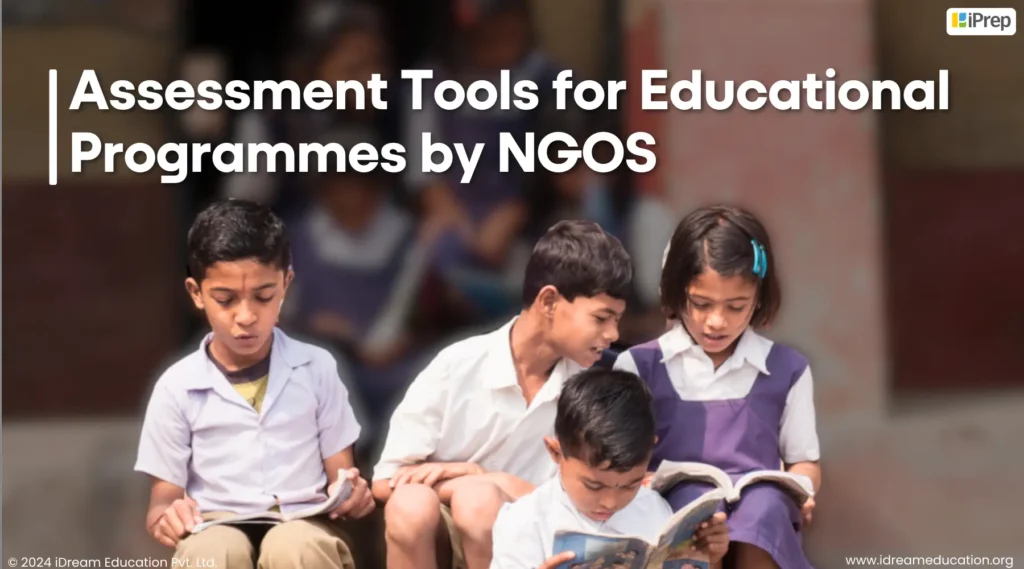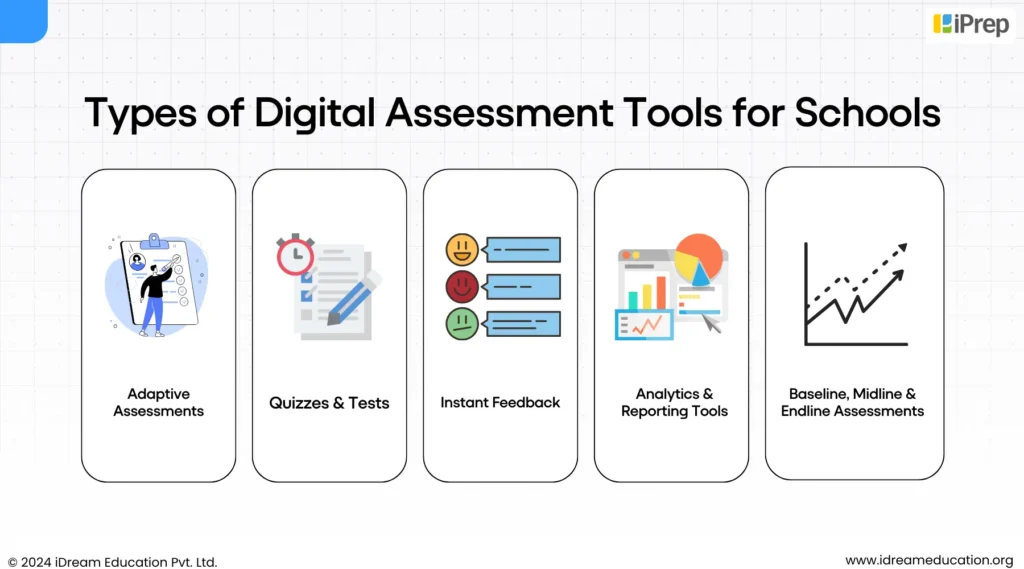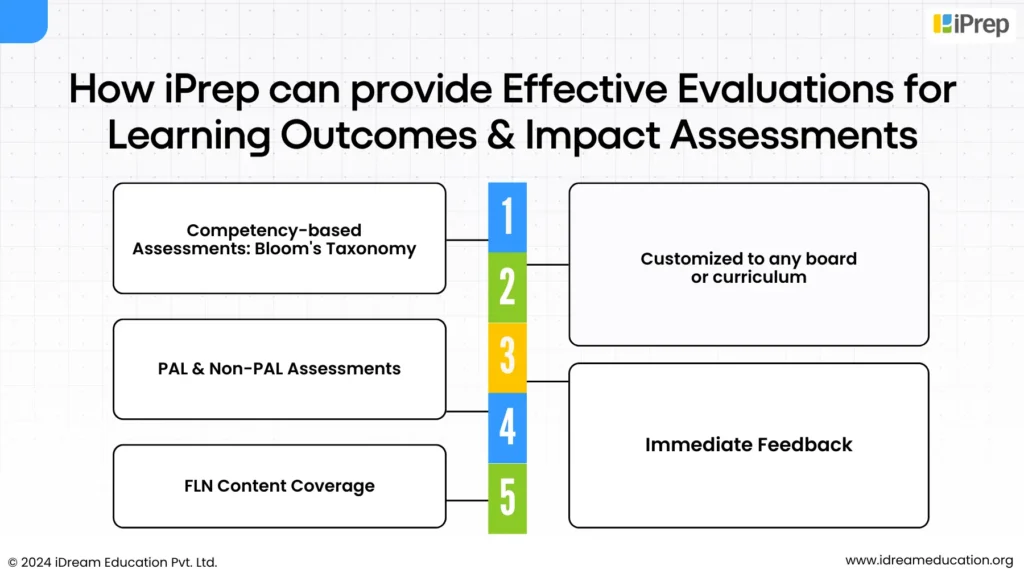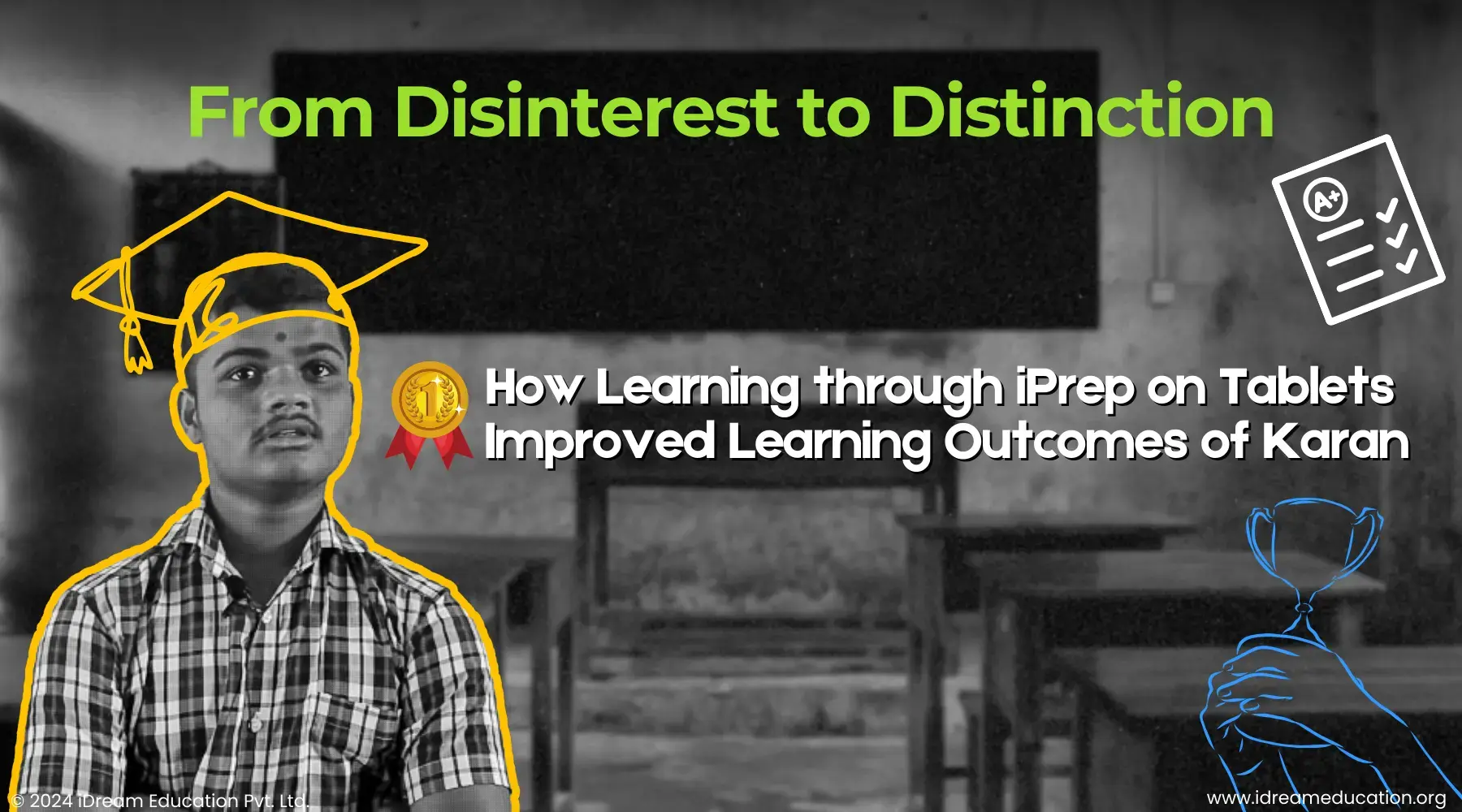Exploring Assessment Tools for Educational Programmes by NGOS

Assessment can serve as the cornerstone of educational endeavours. They offer educators and stakeholders invaluable insights into the effectiveness of teaching methods, learning outcomes, and programme impact. In the digital age, the advent of innovative assessment tools has revolutionized the way we evaluate student progress and measure the success of educational initiatives.
This blog explores the significance of assessment tools in educational programs by NGOs. It specifically focusses on the need and efficacy of digital assessments in these initiatives. The blog also delves into the various types of assessments, their benefits, and implementation strategies in an attempt to provide a complete picture.
Importance of assessment in educational programs
Assessments enable educators to tailor teaching methods according to students’ comprehension levels. Assessments evaluate the effectiveness of teaching strategies, providing valuable feedback for refinement and improvement. They serve as benchmarks for tracking students’ progress over time, identifying areas of strength and weakness. Assessment tools for educational programmes by NGOs ensure accountability by measuring whether objectives are met and learning outcomes are achieved.
Significance of digital assessment tools
Digital assessments hold immense significance in modern education, offering many advantages over traditional methods. By leveraging digital assessments, educational institutions can transition to paper-free evaluation processes, reducing resource consumption and environmental impact. Digital assessments streamline the assessment process, enabling automated scoring and feedback delivery. This not only saves time but also promotes efficiency and consistency in assessment practices. Additionally, digital assessments are highly scalable, allowing educators to administer tests to large groups of students simultaneously, regardless of location.
Types of Assessment Tools for Schools

Assessment tools are crucial components of educational programs, providing valuable insights into students’ progress and guiding educators in tailoring their teaching strategies. Here are various types of commonly used assessment tools for educational programmes by NGOs:
Quizzes and Tests
Digital platforms offer a range of quizzes and tests, such as multiple-choice, true/false, and short answer questions, often drawn from extensive question banks. These assessments provide variability and reliability, allowing educators to gauge students’ understanding and mastery of course material effectively.
Adaptive Assessments
These assessments dynamically adjust difficulty levels based on students’ responses, offering personalized learning experiences. By adapting to individual learning needs, these assessments facilitate targeted intervention strategies.
Instant Feedback
Some digital platforms provide instant feedback on students’ performance, allowing educators to track progress and identify areas for improvement. This instantaneous feedback enhances engagement and empowers students to monitor their progress in real-time, fostering a supportive learning environment.
Analytics and Reporting Tools
These tools collect and analyze data on students’ performance, providing educators with valuable insights into learning trends and patterns. By leveraging analytics and reporting tools, educators can make informed decisions and adjustments to their teaching strategies, ultimately enhancing student learning outcomes.
Baseline, Midline & Endline Assessments
Baseline, midline, and endline assessments enable educators and stakeholders to measure student progress over time and conduct overall impact assessments of educational programmes. These assessments can be conducted digitally using tablets via platforms such as Zoho. These facilitate data-driven insights and decision-making in educational programs. By conducting assessments at different stages, educators can identify areas for improvement and track the effectiveness of interventions, ensuring continuous improvement in student learning outcomes.
Now let us explore in detail the advantages of digital assessment tools for schools, educators, students and stakeholders.
Advantages of using digital assessment tools for schools
Digital assessments allow schools to gather comprehensive data which provides valuable insights. With digital tools, schools can efficiently analyze data to inform instructional decisions, curriculum development, and resource allocation. Digital assessments streamline the assessment process, reducing the time and effort required for administration and grading.
Advantages of using digital assessment tools for teachers
Digital tools can automate various aspects of the assessment process, saving teachers valuable time on tasks such as test creation, administration, and grading. With digital tools, teachers can quickly generate assessments, distribute them to students, and receive instant feedback, allowing them to focus more time and energy on instructional planning and student support. Teachers can analyze assessment data to identify trends, patterns, and areas needing reteaching or enrichment. Digital assessment platforms enable teachers to communicate assessment results, progress updates, and instructional resources with students and parents in real-time, promoting transparency and collaboration in the learning process.
Benefits of digital assessment tools for students
Digital assessment platforms can provide students with immediate feedback on their performance, helping them understand their strengths and areas needing improvement. Students receive personalized feedback and suggestions for further study or practice, empowering them to take ownership of their learning and make informed decisions about their academic progress. This enables students to engage in self-paced learning experiences tailored to their individual needs and preferences. With adaptive assessments, students can progress through content at their own pace, receiving additional support or enrichment as needed. This flexibility accommodates diverse learning styles and abilities, allowing students to take control of their learning journey.
Advantages for stakeholders and policy makers
Digital assessment tools offer stakeholders and policymakers unparalleled access to robust data and analytics concerning student performance, learning outcomes, and prevailing educational trends. This data-driven approach serves as a guiding light in decision-making processes, empowering stakeholders to allocate resources effectively, provide targeted support, and implement evidence-based interventions. Additionally, these tools can also facilitate the establishment of uniformity in academic standards by setting consistent benchmarks and guidelines across schools.
How iPrep can provide Effective Assessment Tools for Educational Programmes by NGOs

Our Approach & Process
iDream Education is driven by the ethos of establishing a robust foundational base for students, doing away with rote learning in favor of enhancing conceptual understanding. Our approach embraces competency-based assessment, emphasizing formative or continuous evaluation to track progress. Central to our assessment methodology is the science of Bloom’s Taxonomy, ensuring that assessments are not only aligned with learning objectives but also directly linked to core concepts.
Our types of Assessments
Non-PAL
Assessments are an integral part of our application iPrep, providing valuable insights into users’ learning progress. These assessments are based on practice tests comprising multiple-choice questions (MCQs), offering immediate feedback to users to gauge their learning level. We ensure that questions are framed using age-appropriate sentence structure, vocabulary, and images, drawing from a diverse range of content including books and multimedia videos. Feedback provided is clear, concise, and detailed, ensuring that users fully comprehend their performance and areas for improvement.
PAL
PAL, our personalized adaptive learning solution, employs a comprehensive approach to assessment. It begins with diagnostic tests that analyze the content in-depth, enabling the system to craft individualized learning paths for each student. These paths prioritize the foundational interlinking of concepts, ensuring a strong understanding of fundamental principles. If a student provides an incorrect answer, the system redirects them to remedial content at a lower level, addressing any identified learning gaps. Practice tests, structured across four levels, dynamically guide students through remedial videos, culminating in a final test requiring an 80 percent mastery score. Should a student’s diagnostic score fall below 25 percent, they are redirected to previous grade levels to address foundational gaps, repeating the process until proficiency reaches 100 percent.
Our differentiators
At our core, we prioritize staying abreast of the latest changes introduced under National Education Policy (NEP), 2020, recognizing the pivotal role assessments play in educational programmes. What sets us apart is our ability to tailor assessments to any state curriculum, a testament to our team’s deep dive into curriculum content. Based on Bloom’s Taxonomy, our assessments are designed to gauge competency levels effectively. One of our key differentiators is the provision of immediate feedback, empowering learners to track their progress in real-time. Our question flow is meticulously aligned with varying difficulty levels, ensuring comprehensive evaluation. While many learning solutions cater to classes 1-12, our coverage also extends to Foundational Learning Needs (FLN), underscoring our commitment to holistic educational development.
Reports & Analytics
iPrep also plays a crucial role in the assessment process by offering extensive insights into student’s learning and engagement through its reports and analytics feature. Through continuous tracking of platform usage, it gathers valuable data on student performance. This data is meticulously compiled and presented in the My Reports section of the application. Moreover, when the device connects to the internet, this data seamlessly syncs with a central reporting dashboard. This integration ensures that teachers have access to real-time information about student performance, enabling them to make data-driven decisions. By utilizing the My Reports section, teachers can monitor student progress, identify areas of intervention and tailor instructional strategies accordingly. This data-driven approach empowers educators to refine their teaching methods continuously, leading to improved academic achievements for students.
Impact Assessment and iDream Education
iDream Education offers a robust framework for assessing the impact of educational programs initiated by NGOs, ensuring accountability and effectiveness. Impact assessment holds paramount importance for NGOs, guiding program improvement and demonstrating outcomes to stakeholders. Here’s how our approach fulfills this need:
Baseline Assessment
At the outset of the educational project or academic cycle, we conduct a comprehensive needs assessment. This involves evaluating learners’ current technological proficiency, knowledge, and abilities. By establishing this baseline, we create a foundational standard against which progress can be measured and evaluated.
Midline Assessment
During the project’s execution, we conduct a midpoint assessment to gauge the effectiveness of the digital learning solutions implemented. This assessment allows us to identify any areas that require improvement and make necessary adjustments. By continuously monitoring progress, we ensure that the program remains aligned with its intended objectives.
Endline Assessment
Towards the conclusion of the project or academic cycle, we conduct a thorough endline assessment. This assessment evaluates the overall effectiveness of the digital learning solutions. We examine changes in student learning outcomes, advancements in technology access, and the realization of wider objectives. Through this comprehensive evaluation, we demonstrate the impact and efficacy of the educational programme.
By implementing a structured approach to impact assessment, iDream Education empowers NGOs to make data-driven decisions, improve program effectiveness, and demonstrate tangible outcomes to stakeholders.
Conclusion
Assessment tools play a vital role in driving educational excellence, empowering educators, and ensuring student success. By embracing digital assessment solutions educational programs can unlock new opportunities for growth, innovation, and impact. At iDream Education, we aim to provide effective assessment practices through our innovative solutions. Our personalized adaptive learning platform, iPrep PAL, empowers educators to tailor assessments to individual learning needs. With features like immediate feedback and comprehensive analytics, iPrep equips educators with the tools they need to drive meaningful change.






